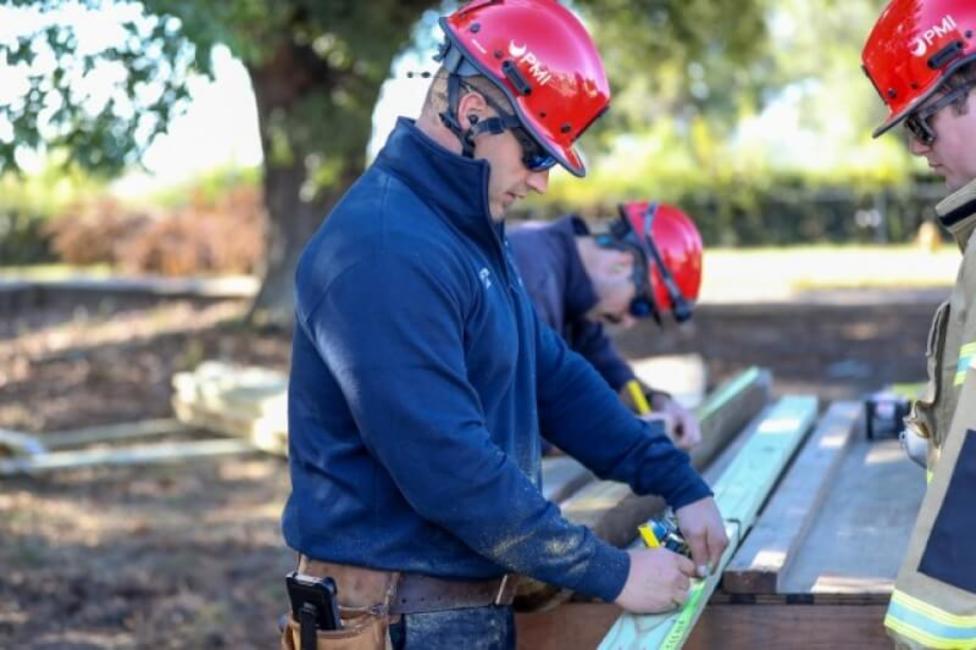opportunities, employment, Construction...
If you’re considering a career in the construction industry but you’re concerned that you haven’t got the key skills and experience you need, think again. Much of what you’ve done in your existing or previous employment can likely be applied to the construction industry. So, to give you a positive approach to your new career in construction, here are seven transferrable skills that you can apply to the construction industry.
Excellent communication skills
Communication is an integral part of the construction industry. Construction workers must be able to communicate information quickly and succinctly with their co-workers to ensure that safety standards are consistently adhered to and that a project progresses on schedule. On-site, clear and concise oral communication is essential, but construction workers must also possess excellent written communication skills.
Construction workers will regularly be required to communicate through emails, texts and paper documentation. When liaising with project managers, suppliers, and clients, construction workers will need to have an excellent grasp of written English to ensure that they can communicate in a professional manner.
Commercial awareness with business acumen
Construction is generally a profit driven industry. Whether you’re working on a large-scale civil engineering project developing infrastructure, or a house building scheme, you’ll need to work within a budget. Awareness of the commercial viability of a project can be a great attribute when working in the construction industry.
If you’re working as a project planner, project manager or main contractor, you will be required to make projects more efficient by streamlining working practices. If you’re based on-site, the ability to spot any defects or sticking points and to suggest alternative ways of working will go a long way to further your career in construction.
Outstanding teamwork skills
The construction industry is collaborative in nature. From a project wide perspective, all parties, including designers and planners through to builders and labourers must all work together towards the same goal. On a smaller scale, each section, site work, planning, supply chain etc must work collaboratively within their own section and connect efficiently with other key areas of the project.
Teamworking is also about building moral and team spirit. A positive individual can have a massive impact on the overall performance of a team. In the construction industry, the ability to motivate others, improve communication and develop camaraderie are excellent qualities which will help any construction project to run more smoothly.
Project management (budgeting, scheduling, organisation etc)
Managing a construction project can sometimes feel like a juggling act. The ability to align all the factors of a project can be challenging and take a lot of dedication and in-depth understanding of the project. Having a thorough strategy in place prior to any work commencing will help to avoid any problems further down the line.
A good project manager will consider financial, organisational and scheduling constraints and take these into account whenever any decisions are made regarding the project plan. Project management will affect every part of a construction venture from management to on-site building.
Maths and English literacy
As mentioned above, good communication skills are essential in the construction industry. A good level of English literacy is, therefore, essential for any construction workers. A sound mathematical knowledge is also required when working in construction. Accurate measurements of both materials and structures are vital in the construction industry.
Basic arithmetic and algebra are a good foundation for working out measurements in the construction industry. Calculating costs is also a big part of a construction worker’s responsibilities and for designers and architects, an advanced level of mathematical knowledge will be required.
Knowledge and understanding of technology
Technology plays an important role in the construction industry. From the latest BIM (Building Information Modelling) software used in the design phase to a range of on-site devices which help with cutting and fitting various parts of a structure, technology is increasingly used across the construction industry.
As we progress further into the 21st century, technological advancements mean that technology will play an increasingly vital role across construction. The ability to embrace technology and use it to your advantage is an excellent skill to have when working in construction.
A positive attitude
A positive attitude goes a long way in any industry. The construction industry is highly competitive, so a drive and desire to succeed will help your construction career to develop. The ability to work under pressure in a positive way will help both you and your colleagues to successfully complete any construction project.
If you’re involved in the construction industry and you’re looking for your next employment placement, PPR can help. If you’re new to construction and would like to find out more about what it can offer to you, we can provide advice on the best place to start. Have a look at our current construction vacancies to get an idea of what type of roles are currently available or contact PPR on 01895 80 81 88 or send us a message online.


